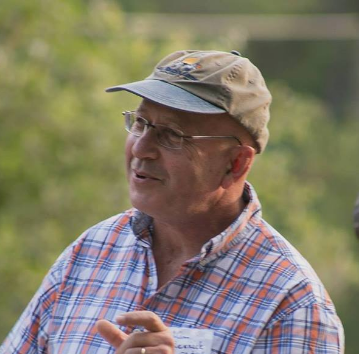click to dowload our latest edition
CLICK HERE TO SUBSCRIBE TO OUR NEWSLETTER


Published
3 years agoon
When it came to the tragic events at Mount Meron over Lag B’Omer, the writing was on the wall, say many who have written and spoken about it in Israel over the past few days.
It followed disastrous political policy in past years (preceding Bibi Netanyahu’s coalition governments, but gaining momentum under him), which has enabled the Haredi community in Israel to develop a model of exterritorial behaviour – behaviour which assume that the rules don’t apply to them. This reality isn’t dictated by their special needs as a community, but by their politicians as a show of strength.
The only thing that’s legitimate to say to the families of the victims, those who lost their lives, and those who were injured in the compound around the grave of Rabbi Shimon Bar Yochai, is that we send our heartfelt condolences and want to find ways to help them in any way possible.
Their pain is immeasurable, and the impact of this awful, tragic event on their lives will accompany them into the future. We need to care for the widows, the orphans, and we will. That’s who we are, and I’m proud of this fact.
And it’s exactly because we care for the widow and the orphan that our response to what happened cannot end with condolences.
We have a responsibility to all of those who live with us as citizens, residents, or visitors to our country, to ensure their well-being and safety. It’s to that end that we created an extraordinary vaccination campaign during this time of pandemic. Our national health system (kupot cholim) ensured that vaccines were available to all, irrespective of whether they acknowledged the legitimacy of the Jewish state or not. It’s to that end that the Israel Defense Forces defends all those who live in this country whether they live in Bnei Brak, Um Al Fahm, or Tel Aviv. Viruses and missiles are blind to ethnicity, faith commitments, and political ideologies.
Similarly, when it comes to taking responsibility for the public domain, for health and safety, for building ordinances, for roads, for large-scale public events like sports events, religious gatherings, rock concerts, it’s the state and its agents who must not only take responsibility, but also face responsibility for all of these spaces and situations, irrespective of which populations are involved.
There is no difference between what needs to be done on the Temple Mount during Ramadan, the Arad Music Festival, the Kotel during the priestly benediction, in Tel Aviv during the large Gay Pride Parade, at Meron on Lag B’Omer, and in Rabin Square during mass demonstrations of any political group.
So why was this allowed to happen? We have lived with a model of separate communities who very rarely interact with each other in meaningful ways for a very long time. Jews and Arabs, secular and religious, modern Orthodox, and Haredi. All living most of the time in our separate tribes and only occasionally – usually in times of trauma – coming together as am echad (one people).
The voices coming out of what happened in Meron are diverse. There is the voice which says, “This is the will of G-d.” There is the voice which says (very quietly most of the time), “The Haredi community had this coming to them. Just look how they ignored the rules during Corona.” There are political voices which are already manipulating the situation as they desperately try to form a new collation to rule in coming years (this is the crocodile-tears voice).
To this I wish to add my voice with a very clear Talmudic concept, “Dina d’malkhuta dina.” This powerful statement, which appears four times in the Babylonian Talmud, means quite simply, “The law of the land is the law.” I choose to use a phrase from within the codex of Jewish law for the obvious reason that this tragedy was a tragedy which had an almost exclusive impact on the Haredi community.
It’s therefore the duty of the Israel political and administrative leadership to go to this community in a language it understands and make it clear that they are acting on their behalf; make it clear that, as this community is an integral part of Israel by virtue of them living here, and irrespective of the attitudes they may or may not have about the secular nature of many of the laws of the state, they deserve to be cared for by the state. One of the ways the state cares for its citizens is by enacting laws and ordinances which ensure the safety of all of those who live within its boundaries.
Politicians who don’t act in this way, whether from the left or the right, secular or religious, are acting in a criminal way, are endangering the people of this country, and have to be removed from office. Only then will our people here (and remember “our people” includes, in my definition, everyone who lives here) be safe and be able to pray, dance, cheer, and march in large numbers.
